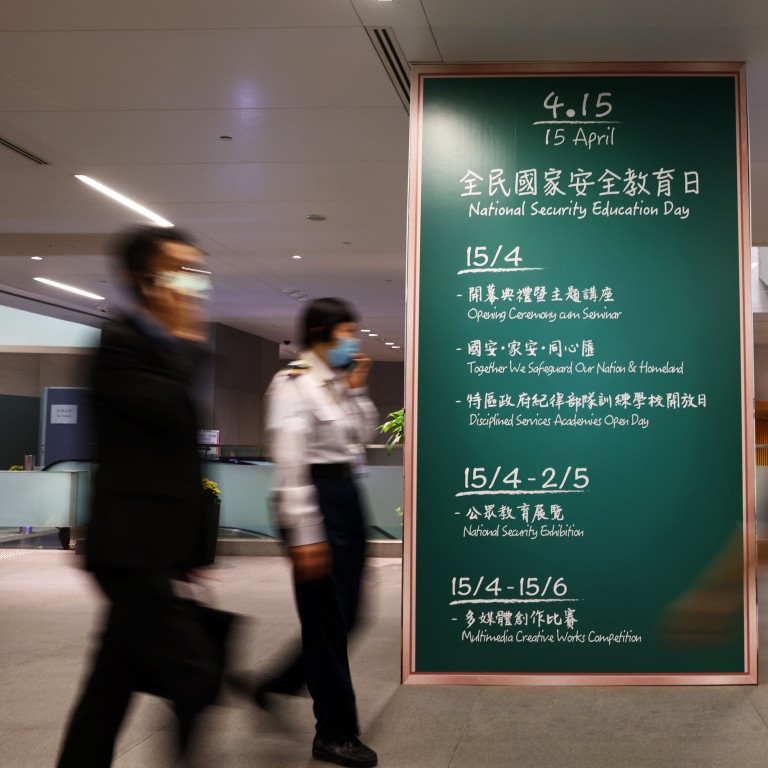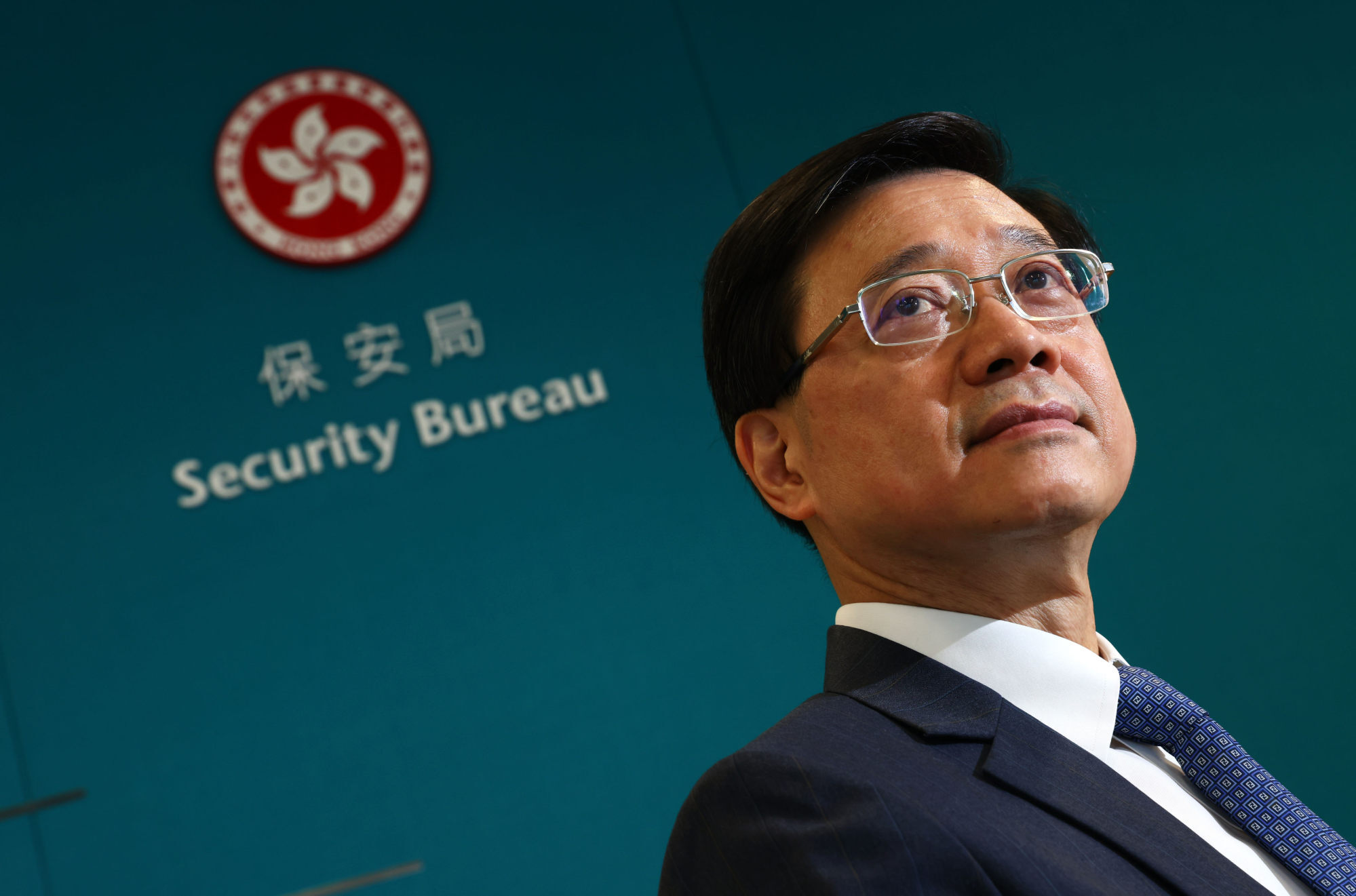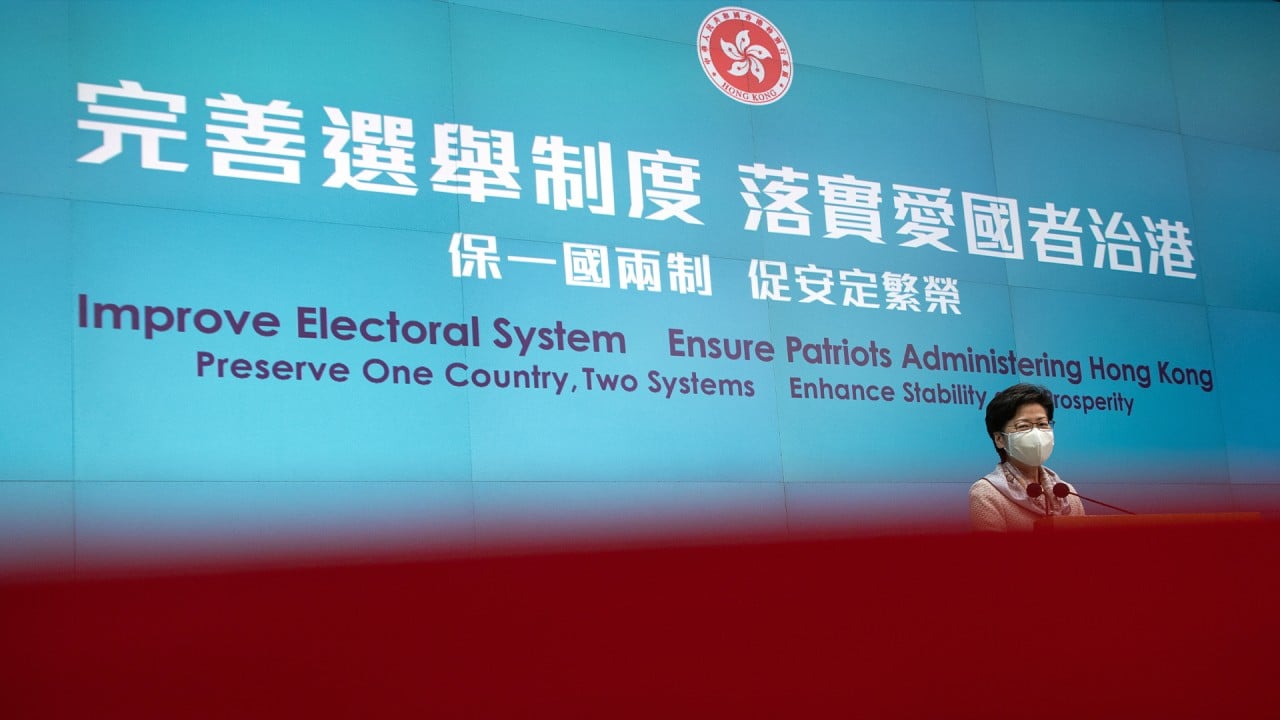
Exclusive | Hong Kong elections: national security police are drafting protocols for screening candidates, security chief reveals
- Security minister John Lee says process is under way for determining how police review office-seeking candidates under Beijing’s electoral reforms
- ‘You can be anti-government ... but you cannot do anything that harms Hong Kong’s overall interests,’ Lee says
Hong Kong police are drawing up protocols for screening candidates for office as part of Beijing’s overhaul of the local electoral system, according to the city’s security minister, who also said an anti-government stance would not automatically bar people from being able to run.
Secretary for Security John Lee Ka-chiu insisted national security police’s sweeping new powers for vetting candidates did not contradict the force’s political neutrality, arguing that the system was meant to weed out “traitors” and enable Hong Kong to thrive without government time being wasted on tackling legislative chaos and sabotage.
Up to three years’ jail proposed for urging polls boycott or spoiled ballots
“[Police’s political] neutrality basically means that when we enforce the law, we don’t look at what party you are with and what political ideas you are holding. We only look at whether you break any law,” Lee told the Post in an exclusive interview.
“In the context of national security review, we look at whether and what you are doing are in conformity with the idea. The deciding factors are two – whether you truly bear allegiance to Hong Kong and truly uphold the Basic Law.”
Under the nomination procedures endorsed in Beijing last month, a newly established “candidate eligibility review committee” would be tasked with scrutinising anyone seeking to run for the Legislative Council, the Election Committee or the chief executive post, ensuring the exclusion of those considered “unpatriotic” and that no threats would be posed to national security.
The influential vetting committee, chaired by government officials, would be advised by both the force’s National Security Department and the Committee for Safeguarding National Security, which Lee sits on. Their input would be kept secret and could not be subject to judicial review.
Lee stressed the political ideals of a candidate were not relevant for the screening process, saying both the police national security unit and the committee chaired by Hong Kong’s leader would look at each individual on a holistic basis, as was standard practice at other government bodies.
“Political ideas are not the issue ... You can be anti-government. You can criticise the government. You can be whatever camp you like. But you cannot do anything that harms Hong Kong’s overall interests, and that will be reflected in whether you uphold the Basic Law truly, not falsely, and bear allegiance to Hong Kong. That is Hong Kong’s interests.”

It is not yet known how police will perform their checks under the new system, how far back they will rake through a potential candidate’s past, or what information will be regarded as relevant.
Asked if the force had been working out the guidelines or procedures for the screening process, the minister said: “Of course, we will have a lot of things that we need to work out. But I cannot make that public because I don’t want people to know it and then circumvent it.”
Political checkmate: more legal moves to block troublesome Hong Kong opposition
Lee said he could not reveal further details because the law required that national security business remained confidential.
Recalling the chaos of recent years in and around the legislature, he said some lawmakers had engaged in physical confrontations and openly advocated Hong Kong independence when being sworn in, accusing them of paralysing the government and trying to engineer the failure of the city’s “one country, two systems” governing policy.
He praised the new system as one which would ensure only people who really cared about the city’s prosperity and interests would become legislators, allowing Legco to make rational decisions and properly scrutinise bills.
Chairman of the Hong Kong Bar Association, Paul Harris, said earlier the vetting process could breach the city’s Bill of Rights Ordinance, with the disqualification of certain hopefuls limiting the public’s choices.
Lee stressed the opening chapter of the national security law promised to uphold human rights in accordance with the law.
“So there is no need to worry about that. I think it is important for anybody who has a legal background to explain to people what the doctrines and principles that national security law has been preaching, demanding and asking for whoever that takes spots in this world to ensure that human rights are protected.”
In a second article covering Lee’s interview, to be published on Thursday, he shares his views on the flight of fugitive ex-lawmakers and says he will look back at the nine months since the introduction of the national security law, which Beijing imposed on Hong Kong to ban acts of subversion, secession, terrorism and collusion with foreign forces.


